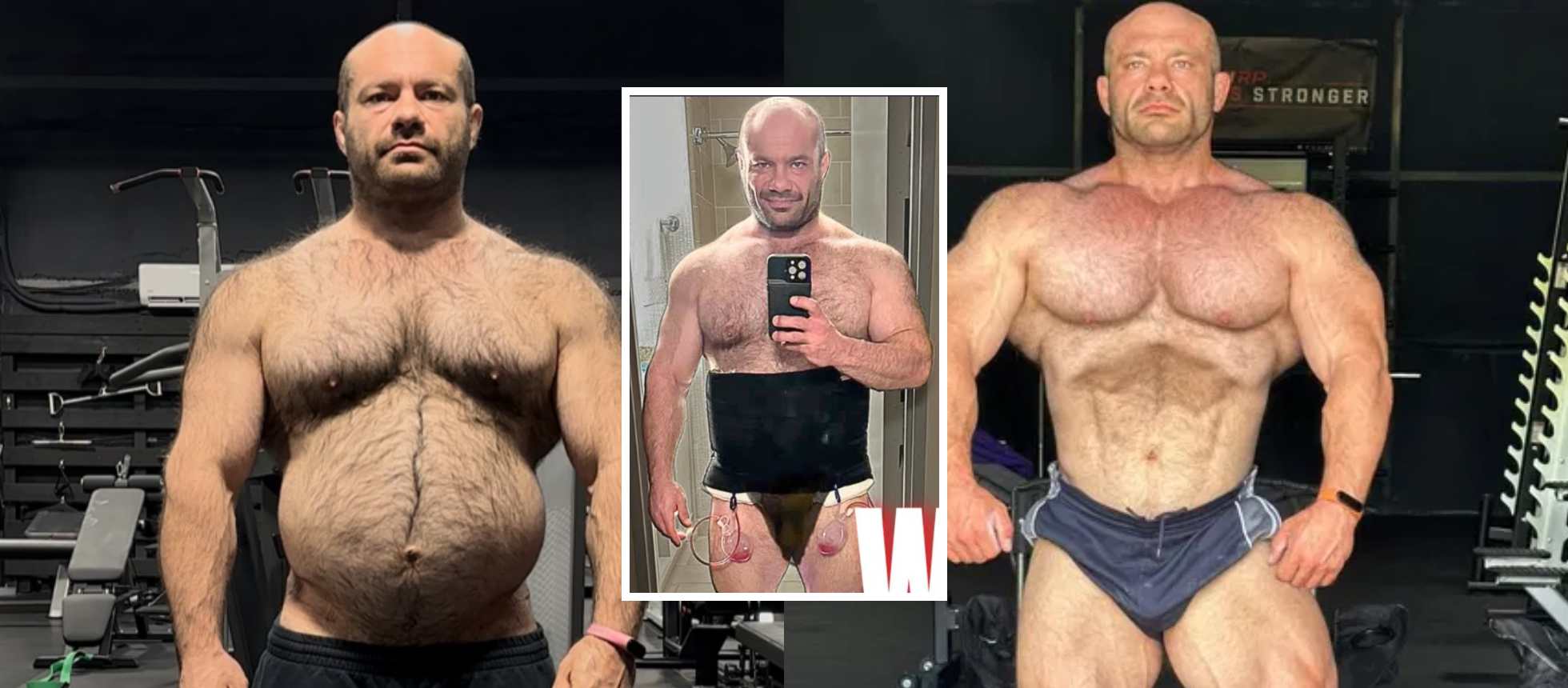Mike Israetel, a renowned exercise scientist and BJJ black belt, has come under scrutiny from fitness coach Greg Doucette for his unconventional approach to body modification. Rather than addressing his dietary habits and d**g use, Israetel is reportedly planning multiple invasive surgeries to achieve his aesthetic goals.
Israetel has already undergone one major procedure that left him with what Doucette describes as “blood in the towels, the hole in his back,” requiring months of recovery before normal training could resume. Despite this ordeal, Israetel is planning even more extensive surgeries, including skin removal around his shoulders and delts, liposuction, and an abdominal plasty where surgeons would “cut into me and take my abs and then stitch them closer together” with a permanent mesh implant.
The plans don’t stop there. Israetel wants additional procedures on his obliques and back, describing to Chris Williamson how he would “reduce the skin” and “suck out this fat” to achieve better definition. As Doucette points out in his video, this represents an alarming pattern of thinking: “How many men have you met in your lifetime ever, that wants to get a skin reduction surgery, liposuction, so that they can more properly see their delts?”
What makes this situation particularly frustrating for critics is that Israetel’s issues could be addressed through much simpler means. His distended abdomen, which he attributes to genetics, is likely the result of years of PED use, particularly growth hormone and st**oids. Doucette argues that “if he wanted his stomach to be flatter, the easiest and safest and healthiest thing he could do, it’s not surgery to sew back his abdominals. It’s to stop abusing the d**gs that caused this in the first place.”
Additionally, basic grooming improvements like proper hair trimming could dramatically improve his appearance without any medical intervention. His current body fat percentage of around 12% could be reduced to 8% through a calorie-restricted diet, eliminating the need for surgical fat removal.
Doucette raises serious questions about Israetel’s mental state, suggesting he may suffer from body dysmorphia. The comparison to extreme body modification cases highlights the concerning nature of choosing multiple dangerous surgeries over addressing root causes through diet and lifestyle changes.
The risks are substantial: potential addiction from pain medication, nerve damage leading to permanent numbness, circulation issues, and the very real possibility of surgical complications. Previous surgery left Israetel unable to defecate for days, requiring what he described as “performing surgery myself.”
Perhaps most telling is Israetel’s own admission about wanting “robotic parts” and being “deeply spiritually affected by the birth of intelligent machines.” This suggests a disconnection from accepting his natural human form.
This controversy highlights a broader issue in the fitness and bodybuilding community where surgical shortcuts are increasingly normalized. While Israetel is an accomplished individual, his approach suggests an inability to accept the natural consequences of his choices and aging process.


